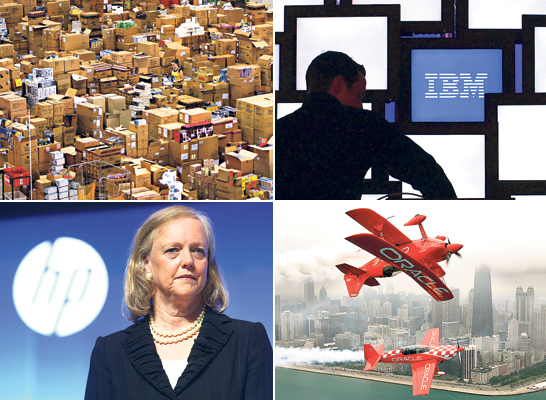Rebecca Palmer| Davisclipper
Cloud computing is increasingly becoming the best way for businesses small and large to handle their information technology needs, a trio of speakers told a group of businesspeople from around the county. Indeed, studies spanning the last few years have shown that the vast majority of businesses use some form of the cloud, and any individuals using services such as Google’s mail or shared documents apps do the same.
The total five years ago had already reach 65 percent, according to a Pew research study. Today, about 85 percent of businesses have adopted the technology, the speakers said. “It’s vital that we stay up to date,” Chamber of Commerce President Jim Smith told the lunch gathering. “It’s moving so fast that you just can’t afford to get behind.”
Cloud computing was originally conceived as a marketing term, but the National Institute of Standards and Technology defines it as “a model for enabling convenient, on-demand network access to a shared pool of configurable computing resources that can be rapidly provisioned and released with minimal management effort or service provider interaction.”
In English, that means any computing model that uses off-site software, virtual machines, external networks and such to manage its computerized information systems. Documents saved to in-house servers or desktop computers don’t meet the definition, but software as a service (SaaS) apps do.
There are three kinds of cloud, the speakers said. They are public, private and hybrid, and each offers varying levels of access and security. Many companies offer such services, ranging from retail behemoth Amazon to tiny startups with only a few employees and servers stacked in the garage.
Speaker Brinton Gunderson, of Century Link’s SAVVIS arm, called moving to the cloud “virtualizing” because the process of putting several servers onto a single physical box is the basis of cloud technology.
“Virtualization is not a new thing,” he said, “It’s just really exploded in recent years.”
Fellow speaker Jared Hoskins added that the benefits of cloud computing for businesses include cost reduction and containment, improved quality of service, infrastructure scalability and flexibility and reduced implementation time for new services.
Many in the audience were excited about the new technology but raised concerns about its security and reliability.
The speakers answered that the cloud actually offers many security benefits such as duplication and management by tech experts and said that, even government officials are watching the industry in an effort to protect consumers.
“Recovering from a disaster is one of the main reasons people are moving to the cloud,” said Hoskins.
In a humorous tone, Smith agreed. The least safe for business data is probably within a business’s own brick and mortar walls, he said.












